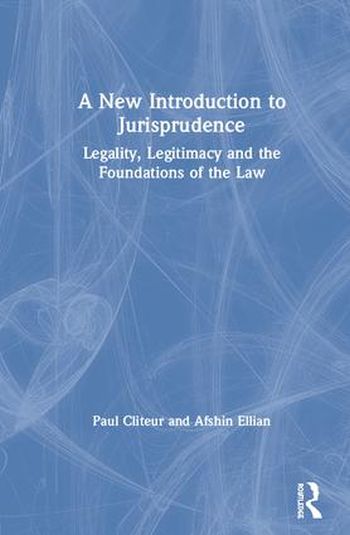
A New Introduction to Jurisprudence takes one of the central problems of law and jurisprudence as its point of departure: what is the law? Adopting an intermediate position between legal positivism and natural law, this book reflects on the concept of ‘liberal democracy’ or ‘constitutional democracy’.
In five chapters the book analyses (i) the idea of higher law, (ii) liberal democracy as a legitimate model for the state, (iii) the separation of church and state or secularism as essential for the democratic state, (iv) the universality of higher law principles, (v) the history of modern political thought.
This interdisciplinary approach to jurisprudence is relevant for legal scholars, philosophers, political theorists, public intellectuals, historians, and politicians.